2020 Annual Report: Fighting for Your Rights in a Year of Crisis
In the face of the most daunting challenges we’ve ever confronted, Free Press achieved remarkable progress in 2020.
A MESSAGE FROM OUR CO-CEOS
2020 was a year like no other: The magnitude of the pandemic is hard to even quantify. The survival of our democracy hung in the balance. And the ongoing fight for racial justice couldn’t have been more urgent.
During this profoundly difficult year, we celebrated some monumental wins. We helped secure billions to make broadband more affordable for millions of people. We took on powerful corporations like Facebook and Twitter — and saw them concede to our demands. Our Black staff launched the groundbreaking Media 2070 project.
We also put big ideas on the table — and now have the political opening to make them a reality.
Without you, we couldn’t have met this moment — and we couldn’t be more grateful for your support. Your generosity enabled us to respond to the crises of 2020. And because we’re funded solely by gifts from individuals and charitable foundations, we’ll rely on your continued generosity to fuel our work and seize new opportunities in the months ahead. Thank you.
Read on to learn what you helped accomplish in 2020.
In solidarity,
Craig Aaron and Jessica J. González
Co-CEOs
Free Press and Free Press Action
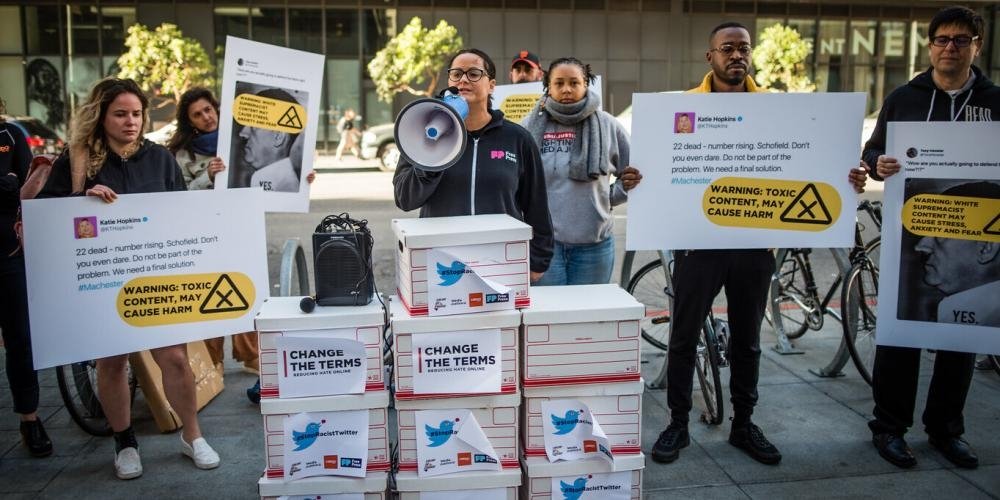
Free Press Co-CEO Jessica J. González at a protest outside Twitter headquarters in 2019.
Brooke Anderson Photography
FIGHTING FOR YOUR RIGHTS TO CONNECT & COMMUNICATE
Alongside our more than 1.4 million members, we’re fighting to change the media to transform democracy and realize a just society. Bedrock to this mission is our shared belief that positive social change, racial justice and meaningful engagement in public life require equitable access to technology, diverse and independent ownership of media platforms, and journalism that holds leaders accountable and tells people what’s actually happening in their communities.
ENDING THE DIGITAL DIVIDE
The ability to access health care, apply for unemployment benefits, learn remotely, telework and stay in touch with loved ones depends on reliable internet access — a crucial issue we highlighted from the start of the pandemic.
In March 2020, we released “Keeping Connected Amid Crisis,” an influential set of policies designed to keep people online during the COVID-19 crisis.
We then went on to shape historic broadband provisions in the HEROES Act, which passed the House in May — and many of these were included in the December COVID-19 relief bill that will give a monthly discount to millions of people struggling to afford internet access.
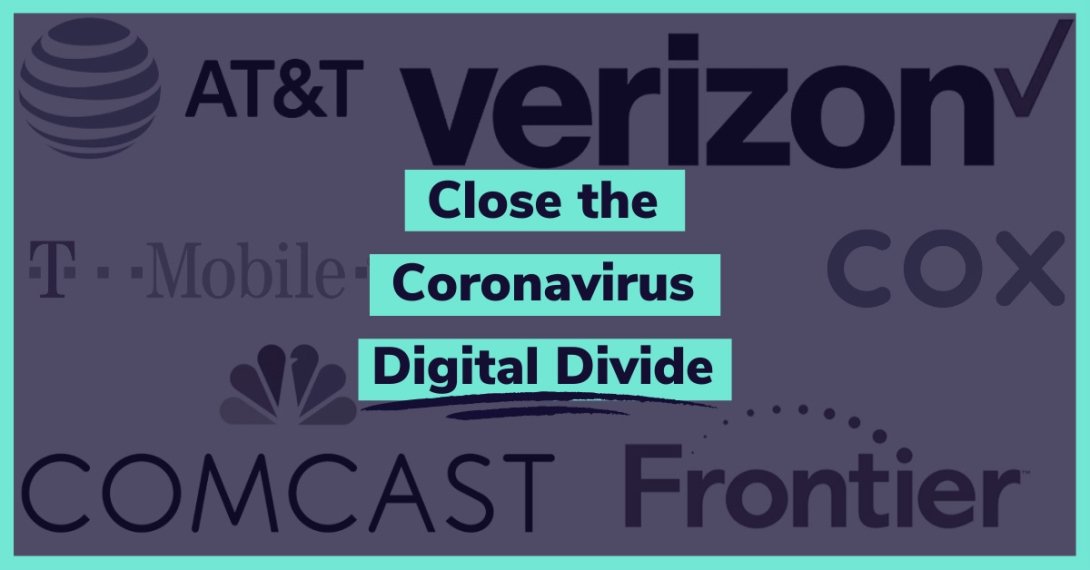
This $3.2-billion program will provide $50-a-month subsidies ($75 on Tribal lands) to cover the cost of an internet connection for low-income families, students and others who have lost jobs or income due to the COVID-19 emergency. The legislation also sets aside billions for other broadband initiatives, including up to $1.3 billion for broadband connectivity on Tribal lands and in communities surrounding historically Black colleges and universities.
As a leader of the #NoShutoffs coalition, we helped mobilize 830 utility-justice, environmental, faith, digital-rights and civil-rights groups to urge Congress to enact a moratorium on broadband, electricity and water shutoffs during the pandemic. We also got Charter to ditch its plan to impose punitive data caps.
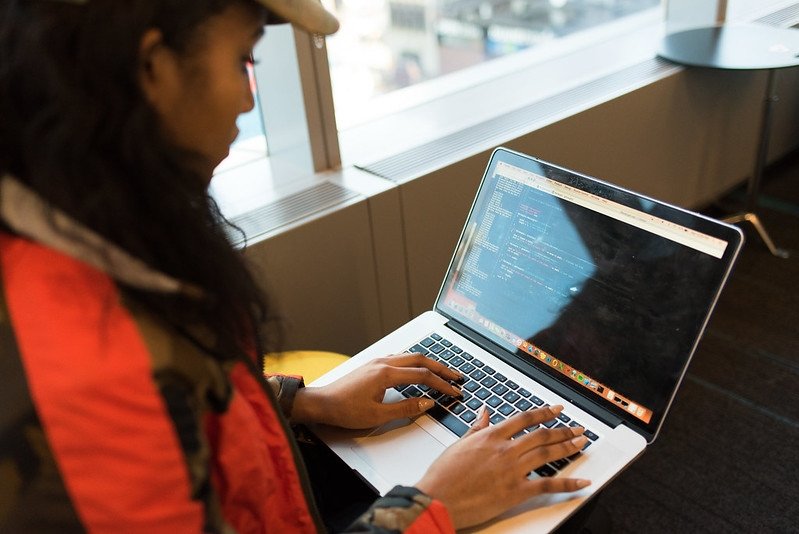
Flickr user WOCinTech Chat
Our original research sounded the alarm that the Trump FCC allowed nearly a billion dollars intended for underserved rural communities to fund the construction of broadband networks in rich, densely populated neighborhoods and other places that don’t need subsidies. $886 million of this money went to Elon Musk’s fledgling satellite company to subsidize networks in places that are already served — and in places where no one lives, like traffic medians, parking lots and storage tanks.
COMBATING HATE & DISINFORMATION
We made huge strides in our work to push social-media companies to crack down on hate and disinformation — and fought the influence of Fox News and other right-wing media.
Free Press helped organize the Stop Hate for Profit ad boycott, the most successful public-pressure campaign ever mounted against Facebook. 1,100+ companies participated — including Adidas, Coca-Cola, Ford, Hewlett Packard, Procter & Gamble, Starbucks, Target and Unilever.
In response to the boycott and a meeting we held with Facebook CEO Mark Zuckerberg and COO Sheryl Sandberg, the company announced that it would:
- Invest more in enforcement of its content-moderation rules
- Ban hateful ads and pandemic disinformation
- Ban stereotypes and racist depictions of women and Jewish, Black, Muslim, Mexican, transgender and nonbinary people
- Apply its policies to politicians
Free Press and our partners at Change the Terms — a coalition we co-founded and co-lead — also drove significant changes to the anti-hate policies of Reddit and Twitter.
We successfully pressured Twitter to ban former KKK Grand Wizard David Duke … and then Twitter permanently banned Trump following his incitement of the Jan. 6 white-supremacist insurrection at the Capitol.
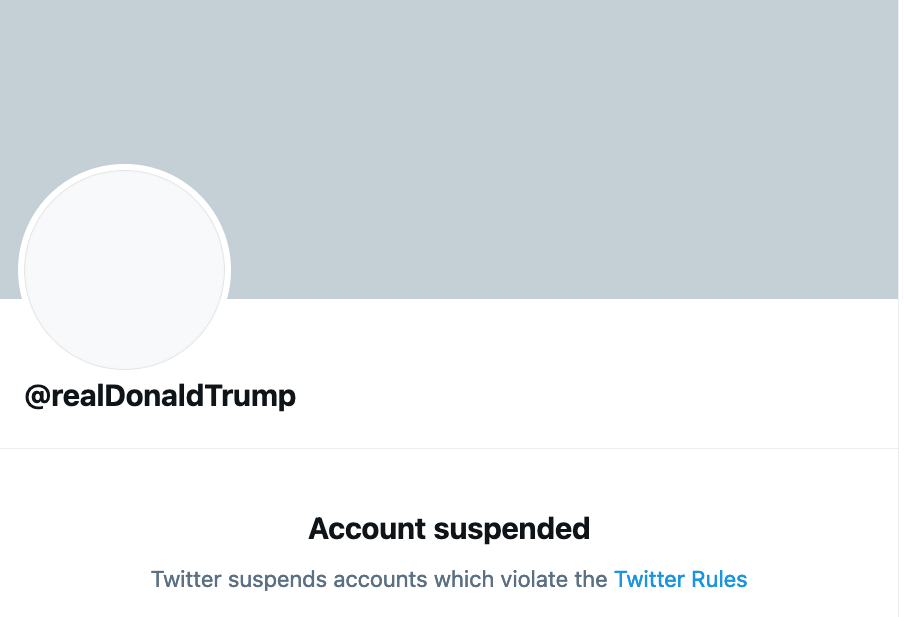
The Change the Terms coalition had long urged Twitter to take this move, citing Trump’s use of the platform to spread hate, conspiracy theories and disinformation. We also succeeded in pushing Twitter to adopt a new policy against dehumanization based on race, ethnicity and immigration status.
Of course, much of the racism and disinformation that gains traction online and off originates on Fox News. After Fox, iHeart Radio and television broadcasters started using the airwaves to spread lies about COVID-19, we urged the FCC to hold broadcasters responsible for airing conspiracy theories and fake medical advice. We also called for the removal of Fox anchor Tucker Carlson for promoting violence against Black people who are fighting for racial justice.
MAKING THE CASE FOR MEDIA REPARATIONS
Black staff at Free Press created the Media 2070 project, which seeks to create a future in which Black people control the creation, production and distribution of their own stories. The project sees media reparations as both a process and a destination that build momentum for broader efforts around reckoning, restitution and racial healing.
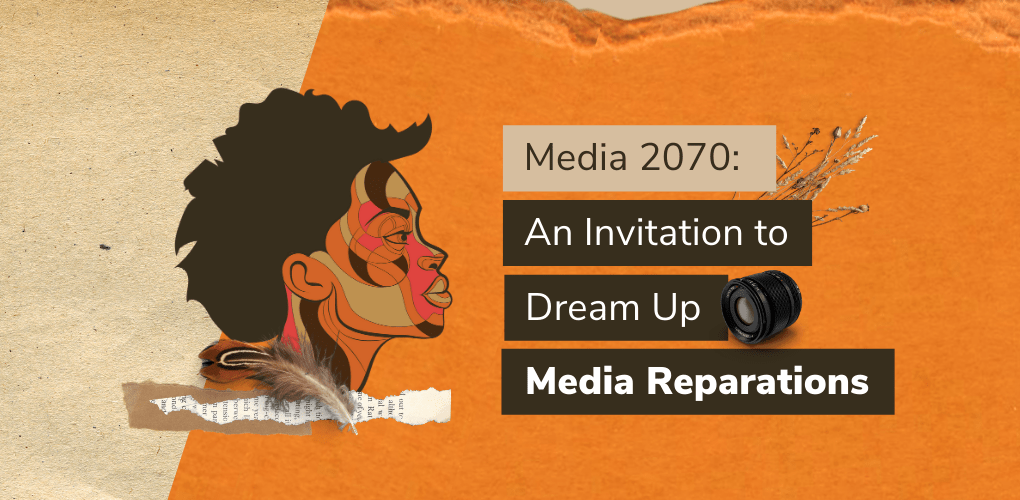
The centerpiece of the project is Media 2070: An Invitation to Dream Up Media Reparations. This visionary 100-page essay examines the history of anti-Black racism in the U.S. media system. The essay also documents the efforts of journalist Ida B. Wells, civil-rights icon Medgar Evers, contemporary racial-justice activists and others to chart an equitable way forward.
The Columbia Journalism Review named the essay one of its top-10 pieces of racial-justice coverage of the year.
The Media 2070 team began a series of powerful online gatherings about the work to secure media reparations and build an equitable media system.
CONFRONTING THE POWER OF BIG MEDIA
We urged the Supreme Court to reject the Trump FCC’s attempt to scrap the limits on how much media any one company can own.
This was the latest twist in a long-running battle: When the FCC gutted media-ownership protections back in 2017, we sued it to restore those rules. In 2019, a federal appeals court sided with us and delivered a stinging rebuke to the FCC. But the agency took the fight to the Supreme Court, which narrowly sided with the FCC in an April 2021 ruling. The silver lining is that the decision opens the door for the Biden FCC and Congress to strengthen policies and create lasting media-ownership opportunities for women and people of color.
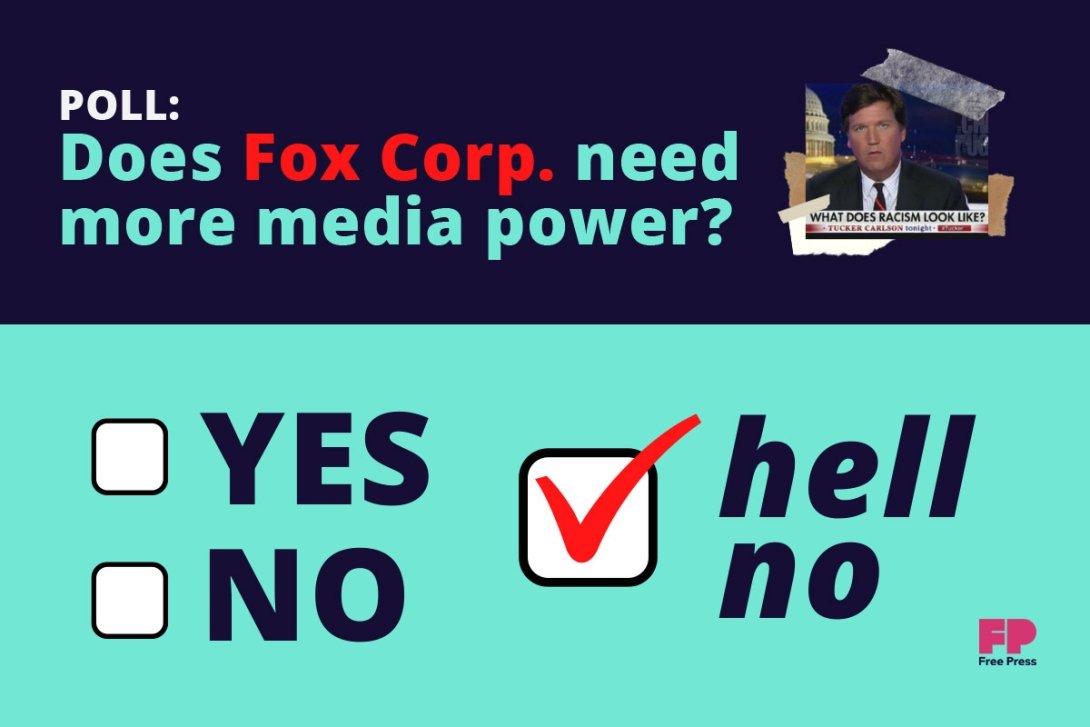
In response to our advocacy, the FCC rejected Fox Corporation’s request for a permanent waiver that would have allowed the company to permanently own two local-TV stations and one local newspaper in the New York City market. This represents an important victory against Rupert Murdoch.
BRINGING BACK NET NEUTRALITY
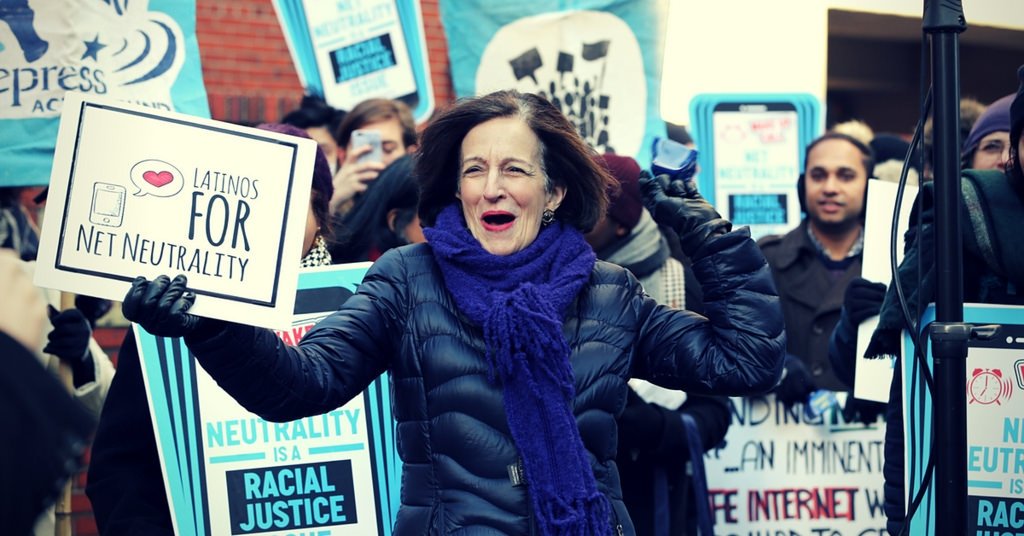
Maria Merkulova
We laid the groundwork for the restoration of open-internet protections in 2021:
Our members took over 600,000 actions.
Thanks to our work, every major Democratic presidential contender came out in support of open-internet rules, as did record numbers of lawmakers from both sides of the aisle.
In October, we debunked former FCC Chairman Ajit Pai’s lies that the Net Neutrality repeal had spurred broadband-company investment.
We joined the defense of California’s landmark Net Neutrality law — and in early 2021, a judge rejected broadband providers’ efforts to block the state’s enforcement of the law.
ADVOCATING FOR PUERTO RICO
We continued fighting for an independent investigation into the causes of the longest communications blackout in U.S. history.
Senior Director of Strategy and Engagement Joseph Torres testified before Congress in February, urging lawmakers to do more to prevent communications breakdowns during and after disasters. Torres explained that the near-total collapse of communications networks following Hurricanes Irma and Maria contributed to the massive death toll in Puerto Rico.
In March, we organized a Capitol Hill briefing, “The Communications Crisis in Puerto Rico and Beyond,” sponsored by Rep. Yvette Clarke and featuring remarks from two FCC commissioners.
SAVING PUBLIC-INTEREST JOURNALISM
We led the call for a journalism recovery from the early days of the pandemic.
We published an in-depth report detailing the massive loss of U.S. journalism jobs in the 21st century — and analyzing the devastating impact on local communities. The study found that 15,000 to 21,000 local reporting jobs have been lost since 2005, with grave societal harms.
The pandemic has only accelerated these trends. Writing in the Columbia Journalism Review, Co-CEO Craig Aaron called on Congress to invest in an emergency journalism stimulus — and to lay the foundation for longer-term support for public and community media.
With Common Cause and PEN America, we led a coalition of more than 45 organizations and scholars in calling on Congress to include funding for local news in the coronavirus stimulus package.
ORGANIZING FOR LOCAL NEWS
We celebrated the fifth anniversary of our transformative News Voices project, which connects community members and newsrooms in cities across the country.
We secured $500,000 in state funding for the New Jersey Civic Info Consortium, a milestone in the years-long effort to foster more informed communities. We conceived of the consortium and moved it forward in partnership with lawmakers, community groups and residents. The nonprofit will award its first grants in spring 2021 and will focus on serving low-income communities, communities of color, immigrants and rural residents.
To serve people’s needs during the pandemic, we held more than 40 virtual conversations about local news between March and August.
We released three powerful guides for reporters:
- How to Report on the Digital Divide & COVID-19
- Racial Justice: The Key to Truthful COVID-19 Reporting
- Journalism for Black Lives: A Reporting Guide, produced in partnership with the Movement for Black Lives
We created “Before and After the Vote: A Journalism-Resource Database,” which contains 100+ resources on ways to cover white supremacy, uphold election integrity and protect reporters’ physical safety.
We launched News Voices: Philadelphia. The centerpiece of our Philly work is the Police and Violence Narrative Project, which aims to replace racist reporting with complex stories about trauma, safety, crime and criminal justice.
We’re working with more than 40 community groups to push The Philadelphia Inquirer to diversify its newsroom, curb biased coverage and center community narratives. And more than 50 local and national groups signed a letter we wrote that calls on Philadelphia city leaders to protect journalists’ rights during racial-justice protests and safeguard the public’s right to record.
We launched News Voices: Colorado. We’re working with local journalists to center the experiences of Black, Latinx and rural communities that have been misrepresented or excluded from Colorado news outlets. We partnered with Colorado Media Project and Colorado News Collaborative to hold virtual conversations with community members that set the stage for the launch of Black Voices: Colorado and Latinx Voices: Colorado in 2021.
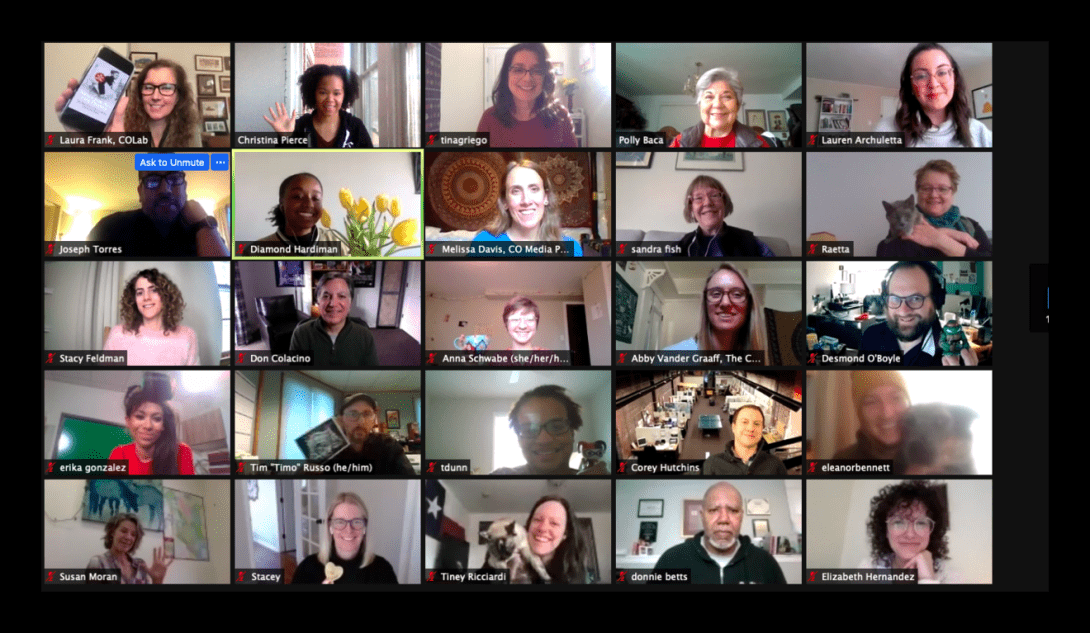
News Voices: New Jersey created a statewide pilot project that’s focused on identifying and addressing information gaps and inequities during the COVID-19 public-health crisis and recovery. We’re working with the Center for Cooperative Media, Outlier Media and Newark Public Radio to cultivate community-led solutions to the local-news crisis.
In Charlotte, North Carolina, we hosted eight digital town halls for residents and reporters to respond to information needs related to the pandemic and racial injustice. We facilitated half of these Charlotte Connects forums in English and half in Spanish. To reach people who aren’t online, we innovated a phone-tree model that has since been used in communities around the country. And our local cohort of volunteers created a Charlotte COVID Resource Map.
PROTECTING PRIVACY & COMBATING SURVEILLANCE
We worked to safeguard people’s privacy rights and underscore how government surveillance disproportionately harms people of color.
Section 215 of the Patriot Act allowed the government to collect an astonishing amount of sensitive data about people in the United States, including data on our phone calls, our locations, our financial transactions — even our medical records. In March, we stopped lawmakers from reauthorizing Section 215 in a huge win for privacy rights.
As protests against state-sanctioned violence against Black people swept the country in the wake of George Floyd’s murder, we worked to curb government-surveillance powers. We teamed up with allies to #ProtectBlackDissent and push Congress to end the FBI’s racist “Black Identity Extremist” designation, which it uses to justify its surveillance of Black people.
In March, we held a Capitol Hill briefing with Rep. Ilhan Omar about the FBI’s shameful history of targeting peaceful protesters — in particular protesters of color.
We teamed up with MediaJustice to write a letter signed by more than 100 groups urging Congress to defund police surveillance and stop spying on racial-justice activists. This was the largest-ever coalition to weigh in on the issue.
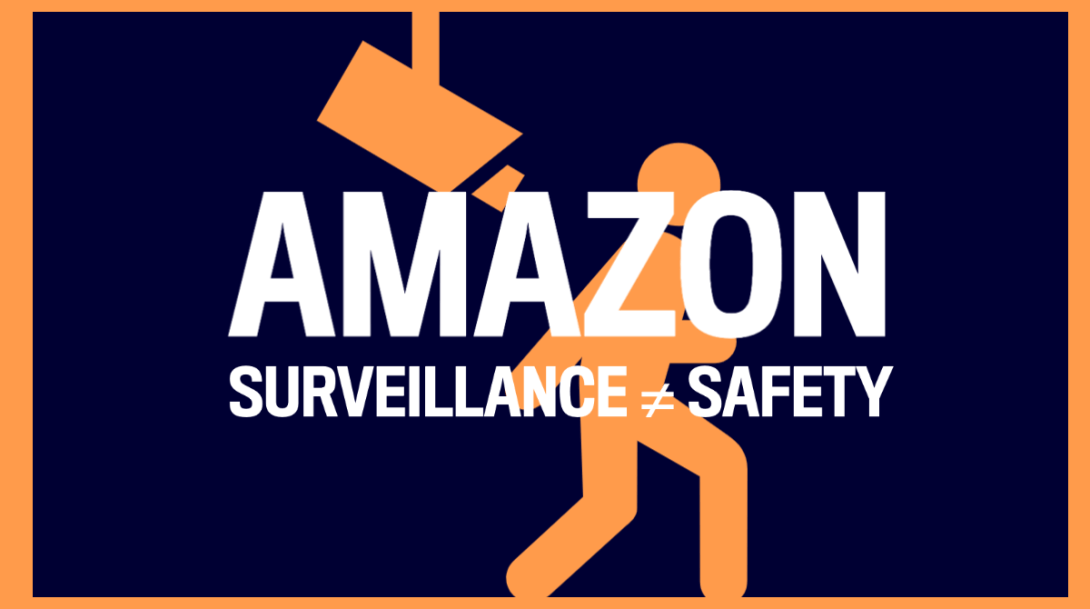
As members of the Athena coalition, we urged activists to #BoycottAmazon over its unethical practices. We highlighted how Amazon arms police with neighborhood-surveillance cameras, powers the software behind ICE deportations and squashes any attempts for basic reforms in its crowded warehouses.
BY THE NUMBERS
Our members took over 600,000 actions.
We published 31 Op-Eds in outlets including The Columbia Journalism Review, The Guardian, The Seattle Times and Univision.
We earned 3,200 media hits, including prominent quotes in the Associated Press, The Los Angeles Times, The New York Times, Reuters, TIME Magazine, USA Today and The Washington Post.
Co-CEO Jessica J. González discussed our work to combat online hate and disinformation in interviews broadcast on the BBC, CNBC, C-SPAN and other outlets.
POWERING PROGRESS IN 2021
Already this year we’ve made huge strides in our efforts to combat hate and disinformation, close the digital divide, transform journalism and protect everyone’s privacy.
We’re focused on repairing the damage of the last four years, expanding what’s possible in this new era and achieving policy changes that will advance racial justice and make a lasting difference in people’s lives.
FUND THE FIGHT
We don’t take money from business, government or political parties and rely on charitable foundations and generous individual donors to power our work.
Please consider giving monthly: Sustaining donors enable us to use resources where we need them most for the most urgent fights ahead. Thank you!

OUR VALUES
Free Press was created to give people a voice in the crucial decisions that shape our media. We seek to change the media to transform democracy to realize a just society. Learn more about our mission.
Learn more about our amazing staff and board.
Please note: We will post financial information for 2020 when it becomes available in spring 2021.
Free Press and Free Press Action are nonpartisan organizations fighting for your rights to connect and communicate. Free Press and Free Press Action do not support or oppose any candidate for public office.
